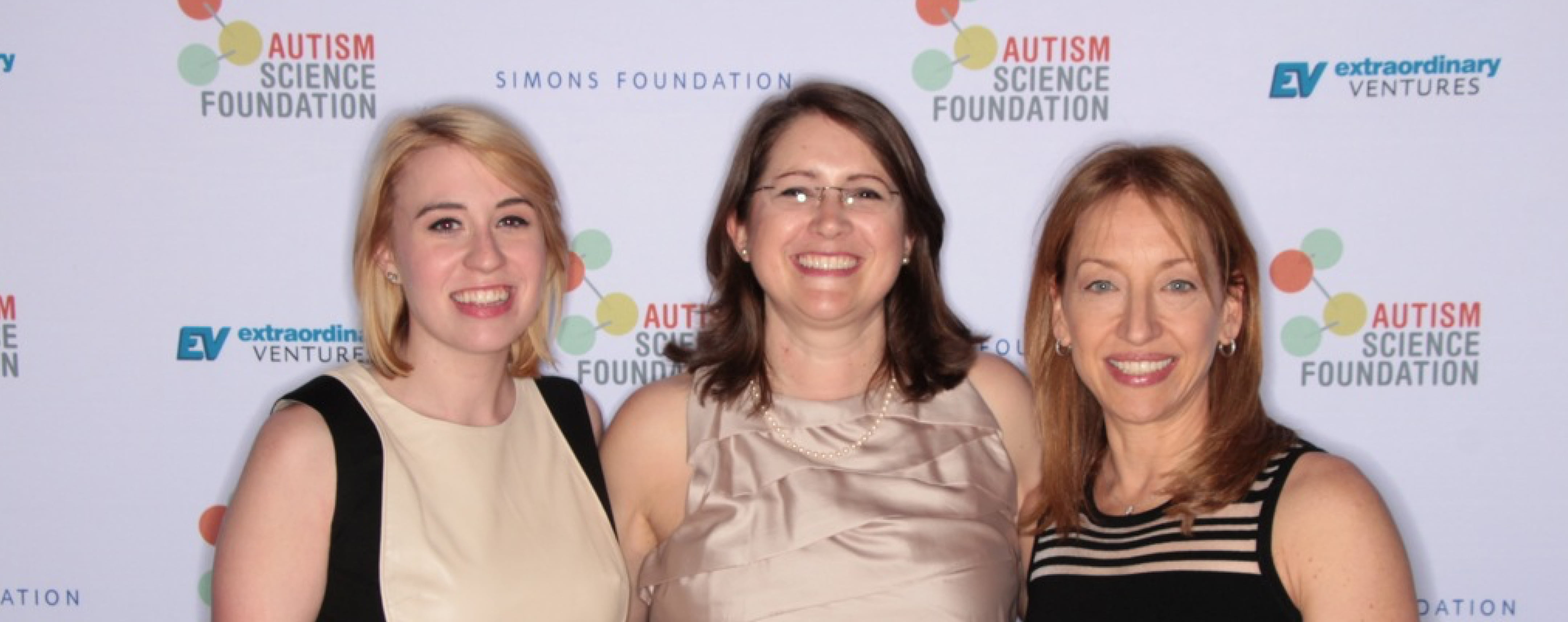Autism Science Foundation Announces 2018 Grant Recipients for Undergraduate Summer Research
To view the press release in its original form, click here.
NEW YORK, NY (April 5, 2018) – The Autism Science Foundation, a not-for-profit organization dedicated to catalyzing innovative autism research, today announced the recipients of its annual undergraduate summer research grants. Four grants have been awarded to promising undergraduates who will conduct research investigating early predictors of ASD symptoms, brain activity during sensory experiences, features of autism in family members, and development of new pharmacological therapies. These projects allow undergraduate researchers to contribute to scientifically important projects while gaining skills that will allow them to flourish as future autism researchers.
“ASF invests in young researchers at the very start of their careers – a unique opportunity not offered by any other organization,” said Alycia Halladay, Chief Science Officer of the Autism Science Foundation. “We are proud to support this year’s recipients, who are each working with an accomplished mentor on projects that will enhance our understanding of autism and ultimately inform new treatment approaches to improve the lives of people with ASD and their families.”
The following undergraduates have received summer fellowships:
Ethan Gahr, Seattle Children’s Hospital
Mentor: Dr. Sara Jane Webb
Ethan will build upon a large NIH study examining why more males than females are diagnosed with autism. He will study brain activity in adults with autism and their undiagnosed siblings, focusing on undiagnosed sisters who may carry genetic liability for ASD but, for some reason, do not show clinical symptoms. His findings may help scientists understand why females are often underdiagnosed, and inform the development of more targeted interventions for females with ASD.
Evan Suzman, Vanderbilt University
Mentor: Dr. Tiffany Woynaroski
Evan will study infants known as “baby siblings” who have a high probability of an autism diagnosis because they have an older sibling with autism. Using this design, the group at Vanderbilt will look at early sensory features to determine how they relate to later social communication and language deficits. These findings may help shape early intervention techniques in infants with sensory issues.
Christina Layton, Seaver Autism Center at the Icahn School of Medicine, Mount Sinai Hospital
Mentor: Dr. Jennifer Foss-Feig
Christina will spend the summer at the Seaver Autism Center examining biological pathways in the brain that coordinate sensory information from the eyes, ears, and brain. Specifically, she will use brain activity measurements to see how disruptions in these pathways affect visual and auditory processing in people with autism. The results will identify how these biological measures explain symptom severity in people with autism, and may be used to complement behavioral measures to improve diagnosis of ASD.
Ryan Risgaard, University of Wisconsin, Madison
Mentor: Dr. Xinyu Zhao
Fragile X Syndrome is caused by mutation of the FMR1 gene that results in a reduction of FMRP protein. Low FMRP levels can cause cognitive disability, anxiety, hyperactivity, and autism. Ryan will be working with Dr. Zhao to examine new molecules that, when applied to certain cells, can reignite production of the FMRP protein. This project will provide critical information on new compounds that may ultimately be used to treat core symptoms of ASD.
About the Autism Science Foundation:
The Autism Science Foundation (ASF) is a 501(c)(3) public charity. Its mission is to support autism research by providing funding to scientists and organizations conducting autism research. ASF also provides information about autism to the general public and serves to increase awareness of autism spectrum disorders and the needs of individuals and families affected by autism. To learn more about the Autism Science Foundation or to make a donation, visit www.autismsciencefoundation.org.
# # #

